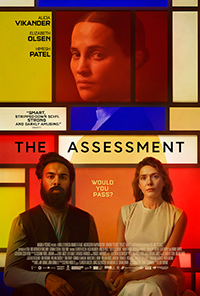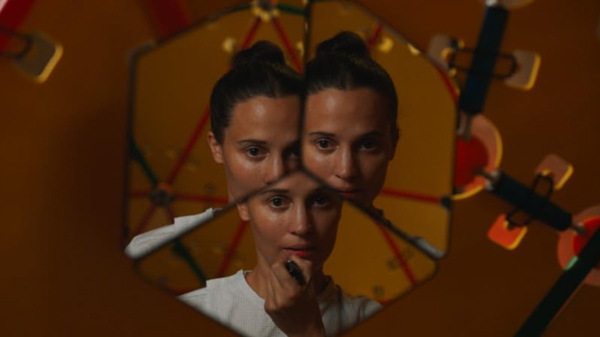The Parent Trap: Elizabeth Olsen Tries Not to Break In Fleur Fortuné’s Debut The Assessment
 The one thing you can count as the world gets worse is a government bureaucracy aimed at making life even more difficult. That’s the general premise of The Assessment, a heady sci-fi dramedy in which even the upper echelon of the 1% don’t find sanctuary from the unseen hand around their necks. The feature debut by music video director Fleur Fortuné is, expectedly, not short on style, but there is only so much the filmmaker can do to hold back a script that is so overstuffed with ideas it eventually overwhelms the carefully calibrated timbre of the picture.
The one thing you can count as the world gets worse is a government bureaucracy aimed at making life even more difficult. That’s the general premise of The Assessment, a heady sci-fi dramedy in which even the upper echelon of the 1% don’t find sanctuary from the unseen hand around their necks. The feature debut by music video director Fleur Fortuné is, expectedly, not short on style, but there is only so much the filmmaker can do to hold back a script that is so overstuffed with ideas it eventually overwhelms the carefully calibrated timbre of the picture.
Working from a concept that would make Yorgos Lanthimos blush (it feels branched from The Lobster), the story takes place in a dystopian future where climate change has rendered the Earth uninhabitable. Those lucky (and rich) enough, like Mia (Elizabeth Olsen) and Aaryan (Himesh Patel), are able to live a relatively normal life under a climate controlled dome, in a beautifully designed house that’s brutalist on the outside and retro-seventies on the inside (memorable work by production designer Jan Houllevigue). The pair are eager to start a family, but strict controls are in place to prevent overpopulation. Anyone who wishes to have children must first gain approval via a seven-day, in-person assessment. And when government assessor Virginia (Alicia Vikander) comes knocking on their door, Mia and Aaryan realize their privilege has little leverage and their marriage is not as strong as they thought.

The bulk of the film takes place across the assessment period, which quickly goes from benign to outrageous. Virginia starts off the overly confident Mia and Aaryan with a simple oral questionnaire. Though the questions veer toward the personal (“How often do you have sex?”), nothing crosses the line with the pair. At least not yet. But as the process continues, Virginia begins to actually act like a baby: refusing to eat, causing havoc, and even demanding to be carried. Thinking the assessment would go no further than observing their living situation, Virginia’s behavior exposes the inequities and unbalanced power dynamics baked into the couple’s relationship. But the deeper Mia and Aaryan go into the assessment, something more sinister rises to surface.

The screenplay by Mrs. & Mr. Thomas John Donnelly works best when it’s worming through the intercine challenges that Mia and Aaryan have carefully walked around in order to preserve their relationship. The power dynamics and assumptions once hidden between them, surface when a third is added. The script also does an excellent job of underlining the pair’s determination to be parents, even as their certainty about their capability gets shaken. This is highlighted in the film’s best sequence, when Virginia orchestrates a sudden dinner party that Mia and Aaryan must host while she acts as a fussy child. With exes and judgemental friends in attendance, the setpiece is fiercely funny stuff, anchored by a terrifically acidic appearance by Minnie Driver.
However, as the film dips into its third act and away from the slowly unbraiding relationship at its center, The Assessment loses its footing. When Mia embarks on a climatic personal mission, the film begins to unfold enough lore and backstory for a miniseries, let alone about thirty minutes of a movie. It unmoors what is, at its heart, a story of want and need, both within and without a couple. The film’s best questions are about what it takes to be a parent, not whether one can be a parent.

It’s only late in the picture that The Assessment begins to grapple with the class concerns that can’t be ignored. The notion carried by those with wealth that their capital makes them good parents is glanced upon, but only to steer the film to a downer denouement that doesn’t land with its intended profundity. Stylish and sad, funny and bitter, The Assessment takes its audience through a test, but the results don’t add up.
Reviewed on September 11th at the 2024 Toronto International Film Festival – Special Presentations Programme. 114 Minutes
★★/☆☆☆☆☆


